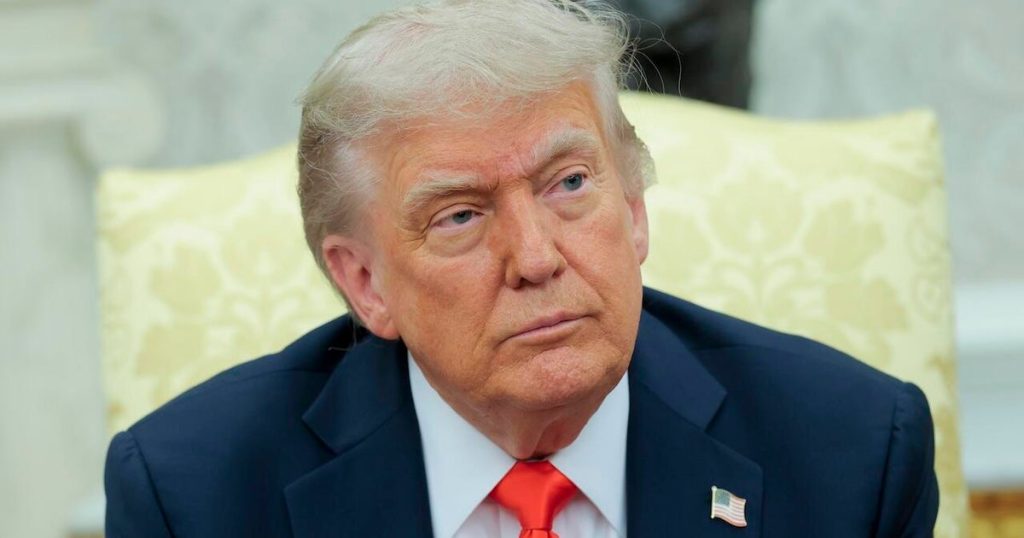All 12 members of the board overseeing the prestigious Fulbright scholarships resigned Wednesday, protesting the Trump administration’s alleged meddling with the selection of award recipients for the international exchange program.
A statement published by the board members said the administration usurped their authority by denying awards to “a substantial number of people” who had already been chosen to study and teach in the U.S. and abroad. Another 1,200 foreign award recipients who were already approved to come to the U.S. are undergoing an unauthorized review process that could lead to their rejection, the board members said.
“To continue to serve after the Administration has consistently ignored the Board’s request that they follow the law would risk legitimizing actions we believe are unlawful and damage the integrity of this storied program and America’s credibility abroad,” the statement reads.
Congress established the Fulbright program nearly 80 years ago to promote international exchange and American diplomacy. The highly selective program awards about 9,000 scholarships annually in the U.S. and in more than 160 other countries to students, scholars and professionals in a range of fields.
Fulbright scholars include recent U.S. college graduates who pursue further study or teach English overseas, American professors who spend a year at a university in another country and international scholars who come to the U.S. to study or work at universities here. Alumni have gone on to serve as heads of state and have received Nobel and Pulitzer prizes.
Award recipients are selected in a yearlong process by nonpartisan staff at the State Department and other countries’ embassies. The board — whose members are selected by the president — has had final approval. The recipients who had their awards canceled are in fields including biology, engineering, agriculture, music, medical sciences, and history, the board members said.
All the board members who resigned were selected under former President Joe Biden. The State Department, which runs the scholarship program, said they were partisan political appointees.
“The 12 members of the Fulbright Board were partisan political appointees of the Biden Administration. It’s ridiculous to believe that these members would continue to have final say over the application process, especially when it comes to determining academic suitability and alignment with President Trump’s Executive Orders. The claim that the Fulbright Hayes Act affords exclusive and final say over Fulbright Applications to the Fulbright board is false. This is nothing but a political stunt attempting to undermine President Trump,” a senior State Department official told CBS News.
The resignations were first reported by The New York Times.
The intervention from the Trump administration undermines the program’s merit-based selection process and its insulation from political influence, the board members wrote.
“We believe these actions not only contradict the statute but are antithetical to the Fulbright mission and the values, including free speech and academic freedom, that Congress specified in the statute,” the statement said. “It is our sincere hope that Congress, the courts, and future Fulbright Boards will prevent the administration’s efforts to degrade, dismantle, or even eliminate one of our nation’s most respected and valuable programs.”
The Trump administration has imposed new restrictions on international students in recent weeks. The State Department halted all new student visa interviews late last month, in preparation for “expanded social media vetting.”
Mr. Trump has also tried to block virtually all international students from traveling to the U.S. to attend Harvard University amid a feud with the Ivy League school, leading a federal judge to issue a restraining order. And anybody who wants to travel to Harvard from abroad — including students, faculty, guest speakers and tourists — is subject to “additional vetting,” according to a State Department email obtained by CBS News.
International students who have already been granted visas could also face extra scrutiny. The administration says it will “aggressively revoke” the visas of some Chinese students, and authorities have sought to rescind thousands of other students’ legal status, though a judge blocked that practice.


